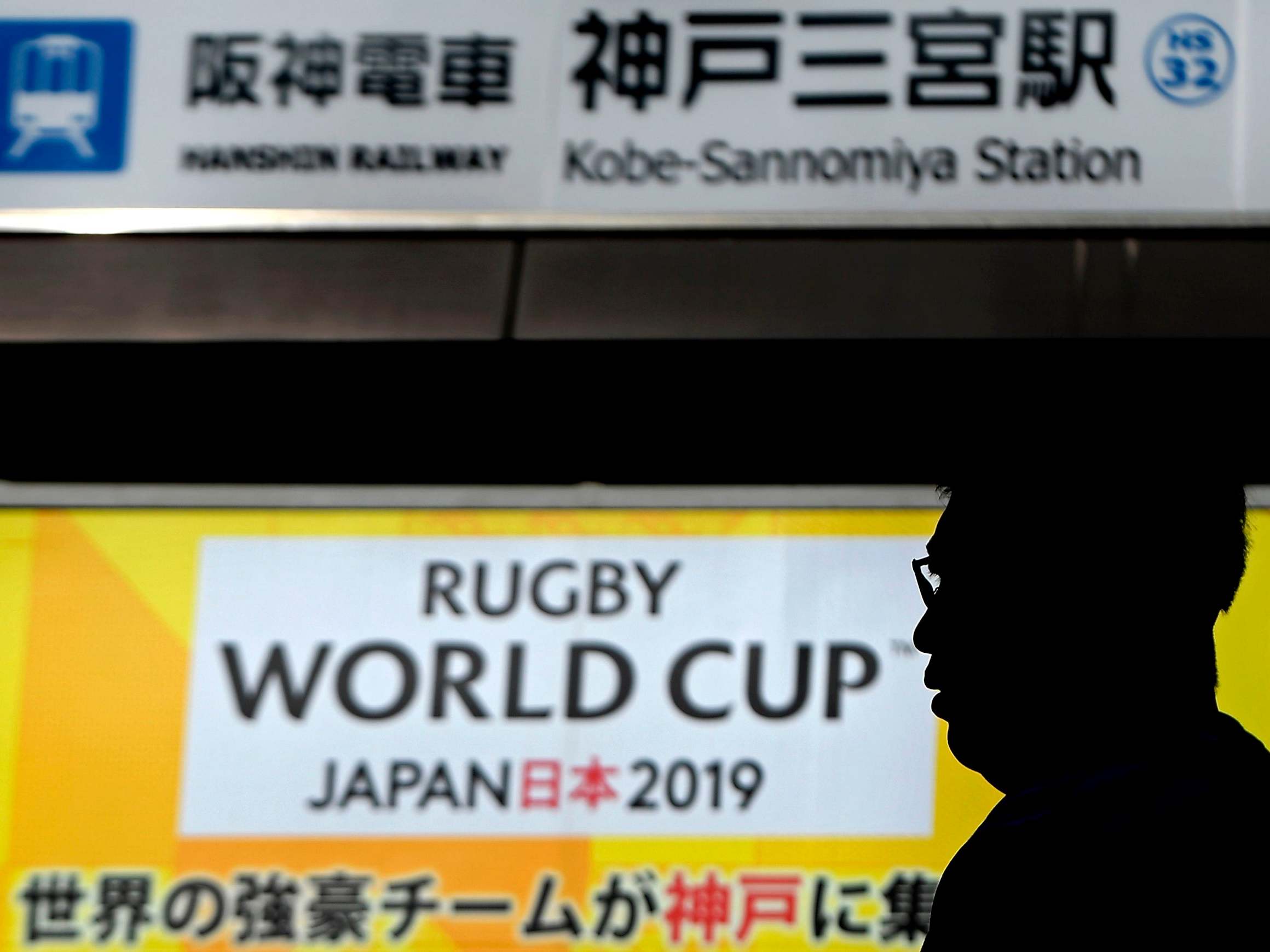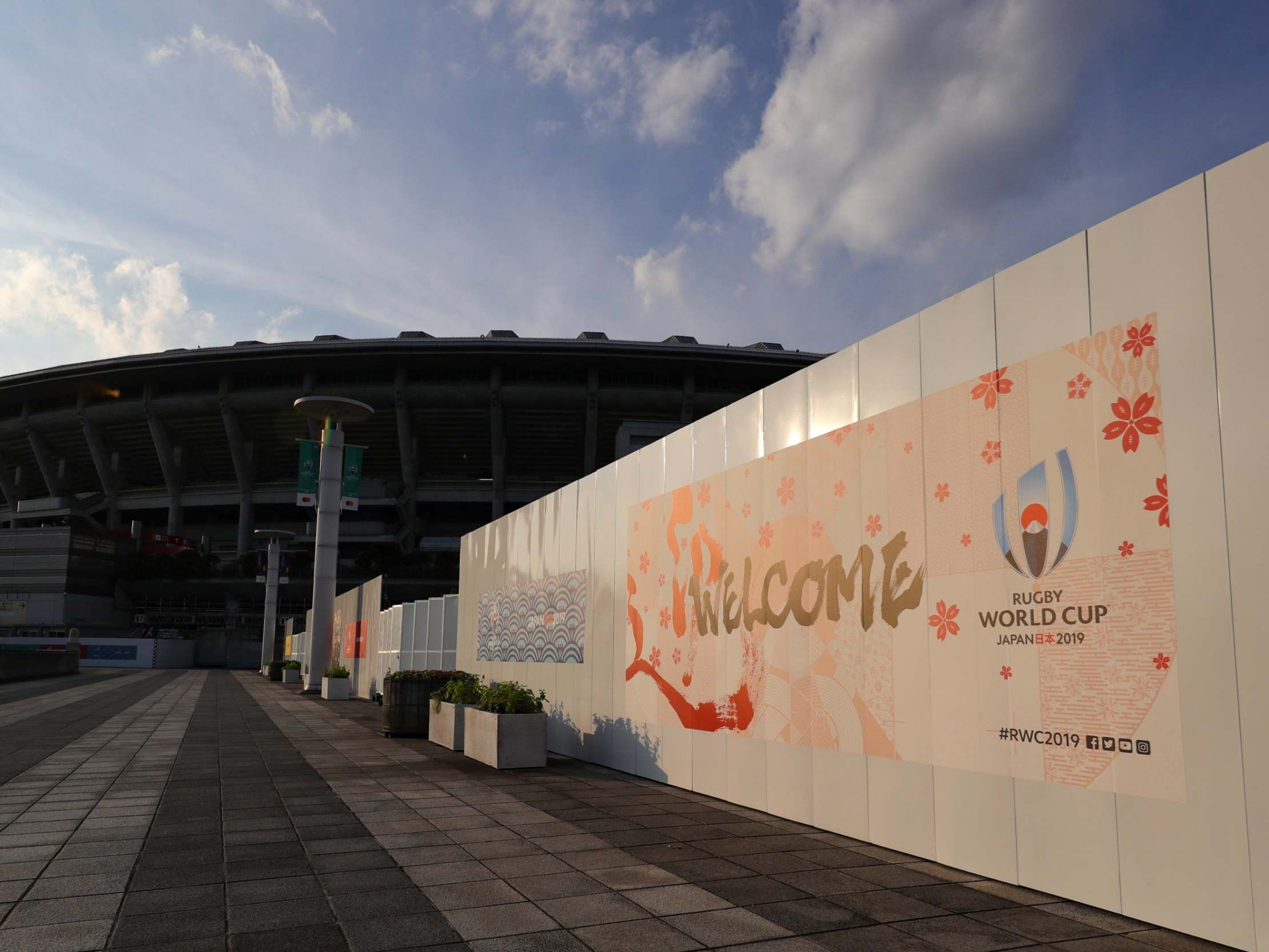Rugby World Cup 2019: Japan’s moment in the sun offers new hope but same old questions remain
The World Cup's first foray to Asia is a groundbreaking moment for the sport but many of the questions that have loomed over tournaments past do so again
Has there been a more groundbreaking year for sport than 2019? No, is the answer. Let me explain why.
As the Rugby World Cup prepares to kick-off in Japan for the very first time, it is worth casting the mind back to June. With training camps beginning across the globe and plans being put in to place that all end with the lifting of the Webb Ellis trophy, another tournament was just getting underway that would have hugely positive ramifications for sport across the board.
The Fifa Women’s World Cup captured an audience that had never before been seen at a female tournament, particularly in the United Kingdom where Scotland and the Lionesses captured the imagination of the British public, and further afield where Megan Rapinoe and the United States Women’s National Team took the back-page stories to the front by shining a bright light on equality in sport in a battle that continues to rage on today.
There have been seven World Cups before France 2019, but none quite like this summer’s event that put the women’s game on the biggest stage. It was, to put it in one word, groundbreaking.
Next came the Cricket World Cup – a symbol of a new generation, innovation and progression. One-day cricket continues to suffocate the future of the Test game, even if the spectacular Ashes series put the long format back in the big picture, as ODIs, Twenty20 and the planned ‘Hundred’ offer shorter, more intense alternatives.
The 2019 final was arguably the most dramatic moment for British sport since ‘Super Saturday’ at the 2012 Olympics – perhaps even since Jonny Wilkinson’s drop-goal in 2003 for England supporters – and the edge-of-your-seat action only strengthened the fact that cricket is changing, whether the traditionalists like it or not. The way that Jofra Archer made his mark on the tournament and how Ben Stokes bludgeoned England into contention, it was impossible not to be immersed by the tension. From the moment Jos Buttler whipped off the bails to crown England world champions, a new dawn for cricket on home shores started. Groundbreaking.
Which brings us to Japan, and the first Rugby World Cup to take place in Asia. It would be fair to describe that World Rugby’s decision to take their marquee tournament to a tier two nation for the first time as groundbreaking, given what it represents to the people of Tokyo, Sapporo, Yokohama and beyond as well as the fans venturing to Japan who find themselves with a new land to explore.
Yet beyond the feeling of new elements surrounding the tournament, the same old questions are the ones rearing their head on the eve of the opening match: will the All Blacks win it again? Does South African rugby have a drugs problem? How do we stop nations ravaging the Pacific Islands for their best players? Why aren’t there more countries challenging to be world champions?
None of this feels particularly groundbreaking, but rather the traditions of what the Rugby World Cup represents. Free-to-air TV? Tick. The usual suspects expected to reach the quarter-finals? Tick. The house may be different, but the furniture remains the same.
These things aren't a slight on the tournament or Japan at all though. It merely shows that rugby union and those in charge of it have a system that works and know how to get the best out of it. The next six weeks are likely to resemble a hybrid between a major global tournament, organised with split-second accuracy, and a carnival as a passionate nation adopts the sport as its own. Japan 2019 will be fun, friendly and relaxed, even as the tension builds throughout the tournament with dreams on the line.
But back to those questions: important questions. The All Blacks have the chance to do something no other side has – again – and win three consecutive World Cups, with three players in particular in contention to achieve the feat as individuals too in Kieran Read, Sam Whitelock and Sonny Bill Williams. If Steve Hansen’s side retain the Webb Ellis trophy, the argument over who the greatest sporting team ever seen may just be answered. One thing is for sure though: if New Zealand achieve greatness once again, their run of dominance will not be breaking any new ground.

It is the same case with the Springboks. South Africa is not unfamiliar with battling adversity when it comes to sporting success, be it cricket, football and more often than not rugby union. Twenty-four years ago it was the post-apartheid shadow that needed lifting, and since that 1995 World Cup success there have been issues with quotas, the treatment of black players in various sports and the issue of performance-enhancing drugs that just refuses to go away.
Two of these loomed over the Springboks once more upon their arrival in Japan, with star player Eben Etzebeth under investigation back in South Africa after being accused of assaulting one individual and racially abusing another, while 2018 Breakthrough Player of the Year Aphiwe Dyantyi – a shoe-in for the World Cup squad – faces a lengthy ban after failing a drugs test.
Current England assistant coach John Mitchell noted during his time coaching in South Africa that the issue is from the ground up. “In South Africa, doping is an issue that starts at schoolboy level,” he said in 2014. “The perception is that you have to be big to become a professional – it’s no wonder schoolboys want to bulk up.”

Those questions keep being asked at every World Cup, as is the one over how many nations can realistically dream of winning it. When England went out of the 2015 tournament, it was only because they were in the same group as Australia and Wales – established giants of the 15-man game. When will a Japan, or a Fiji, or even a United States grow big enough to join the elite and really make the tournament a global game? In 2019? I’m not so sure.
Perhaps this will be proven wrong and the sporting year will end with the finale it deserves. There is no doubt that come 2 November, the world will be gripped by the Rugby World Cup final, and it is genuinely hard to correctly predict who will be the two sides competing in it. The competition has a lot to live up to given what has gone before it, now it’s time for rugby union to deliver and prove that the ground beneath it is not the path well-trodden but lush new land ready to develop into something much greater.
Join our commenting forum
Join thought-provoking conversations, follow other Independent readers and see their replies
Comments
Bookmark popover
Removed from bookmarks